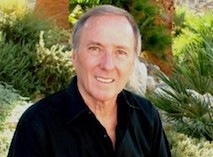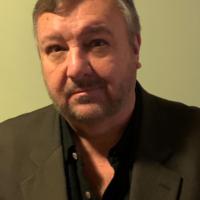I told the officer that we’ve been through this before. I recall the late 1960s and early 1970s when the country went through a similar tumultuous time.
Cops then, like now, were under fire – figuratively and literally. There were the anti-Vietnam War demonstrations and urban riots, and we had violent groups like the Black Liberation Army, the Symbionese Liberation Army, the Weather Underground, the Black Panther Party and MOVE.
These groups and others berated, assailed, and even assassinated police officers. Cops were called “pigs” and other unflattering epithets. Then, like today, there was a strong, vocal anti-cop segment of American society. Then, as now, many of the people expressing vitriolic anti-cop sentiments had little, if any, personal contact with police officers.
I recall Thomas Fleming’s 1971 New York Times review of Joseph Wambaugh’s debut novel, which began, “Do you like cops? Read ‘The New Centurions.’ Do you hate cops? Read ‘The New Centurions.’”
That is still good advice today.
For a bit of historical perspective, I suggested that the young officer read Joseph Wambaugh, the former Los Angeles Police Department detective sergeant turned best-selling novelist and true crime author. I suggested he start with “The New Centurions” for Wambaugh’s fictional depiction of the 1965 Watts riots in Los Angeles.
I also had a conversation with a 22-year-old Temple University student who expressed a hatred of Philly cops. He admitted reluctantly that he didn’t know any police officers personally and he’d never had an encounter, good or bad, with a cop. His enmity was based on what he’d heard, read, or seen on TV and movies. For a bit of balance and to understand the cops’ lot, I suggested the student read Joseph Wambaugh.
I’ve interviewed Joseph Wambaugh several times over the years and I once asked him if his goal was to humanize cops. Yes, he replied. He said he wanted to make cops come to life as human beings.
“That’s what I mean by humanize. I don’t mean clean up their image,” Wambaugh said.
Still a serving LAPD officer when “The New Centurions” was published, Wambaugh came under fire from the LAPD chief who objected to his depiction of police officers at their worst. The novel also portrayed police officers at their best.
I reached out recently to Joseph Wambaugh, who is 82 and living in San Diego. He said he has fond memories of visiting Philadelphia and meeting Philly cops when he was here researching “Echoes in the Darkness,” his 1987 true crime book about the 1979 murder of an Upper Merion High School teacher named Susan Reinert. A 1987 TV movie was based on the book.
I asked him what he thought of the anti-cop sentiment here in Philadelphia, as well as across the country.
“As to the current state of negative attitudes toward police, I think I would simply revert to a bit of basic math,” Wambaugh replied.
“There are approximately 700,000 cops in the U.S. serving about 18,000 police departments. The police engage in about 55 million citizen contacts every year. The terrible George Floyd killing triggered other highly publicized accusations alleging unlawful deadly force. Let’s assume that the accusations continue to grow until there are as many as, let’s say, 55 in the U.S. this year.
“And let’s pretend that after investigations are concluded, the complaints are all affirmed – that is not the case, but let’s assume the worst for the sake of argument. Therefore, in a perilous job involving ever-present possibility of violence, the numbers would come to about one allegation of unlawful deadly force per one million citizen contacts.
“The George Floyd incident was horrible to watch, but I wonder what other dangerous profession involving instant life-and-death decisions can claim a better record than one in a million? Perfection will never be possible in a cop’s highly imperfect world.”
Joseph Wambaugh offers a convincing argument.
I like all of Joseph Wambaugh’s books, but in my view, “The Onion Field” is his best book. The 1973 book tells the tragic true story of the murder of an LAPD officer in an onion field, his surviving partner who suffered psychologically, and the arrest and trial of the two petty criminals who kidnapped and murdered the officer. I believe “The Choirboys,” his brilliant dark comedy about cops, is his best novel.
All of his books offer entertainment, insight, drama and abundant humor. And no writer describes the cop world’s twin masks of comedy and tragedy as well as Joseph Wambaugh.
So if you’re looking for a gift for someone who hates cops, loves cops or simply loves a good book during these tumultuous times, I recommend Joseph Wambaugh’s classic cop novels and true crime books.
Paul Davis’ Crime Beat column appears here each week. He is a Philadelphia writer who has written extensively about organized crime, cybercrime, street crime, white-collar crime, crime fiction, crime prevention, espionage and terrorism.





